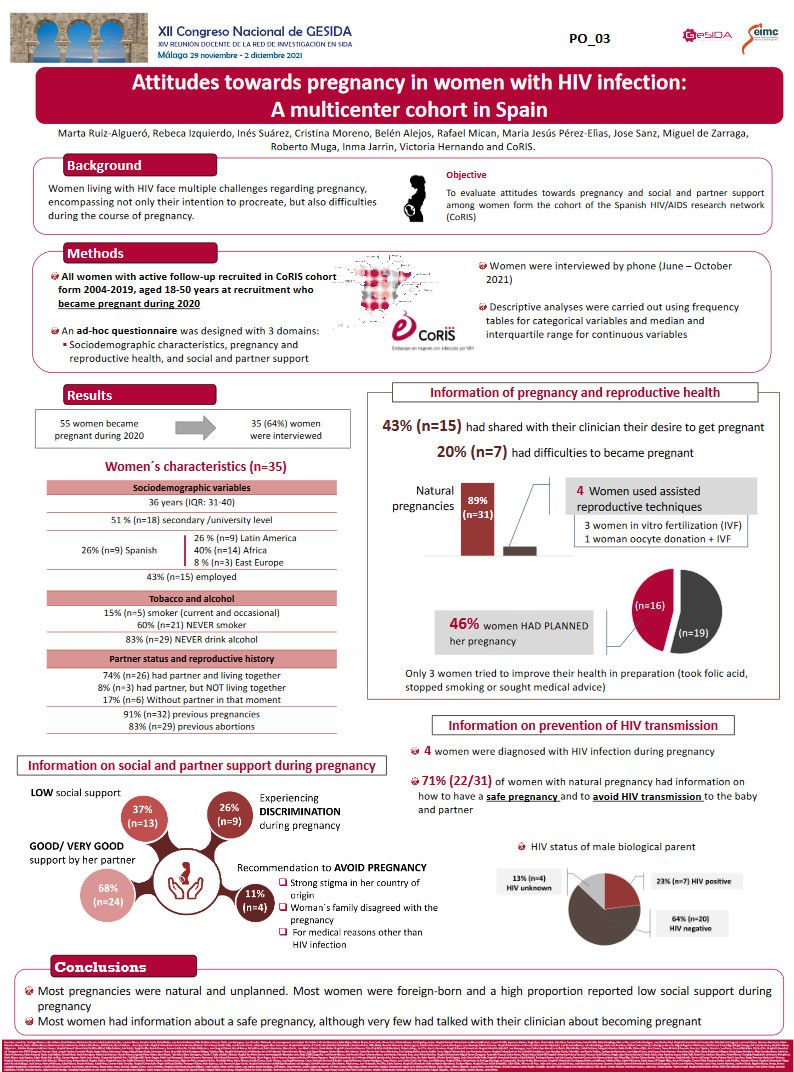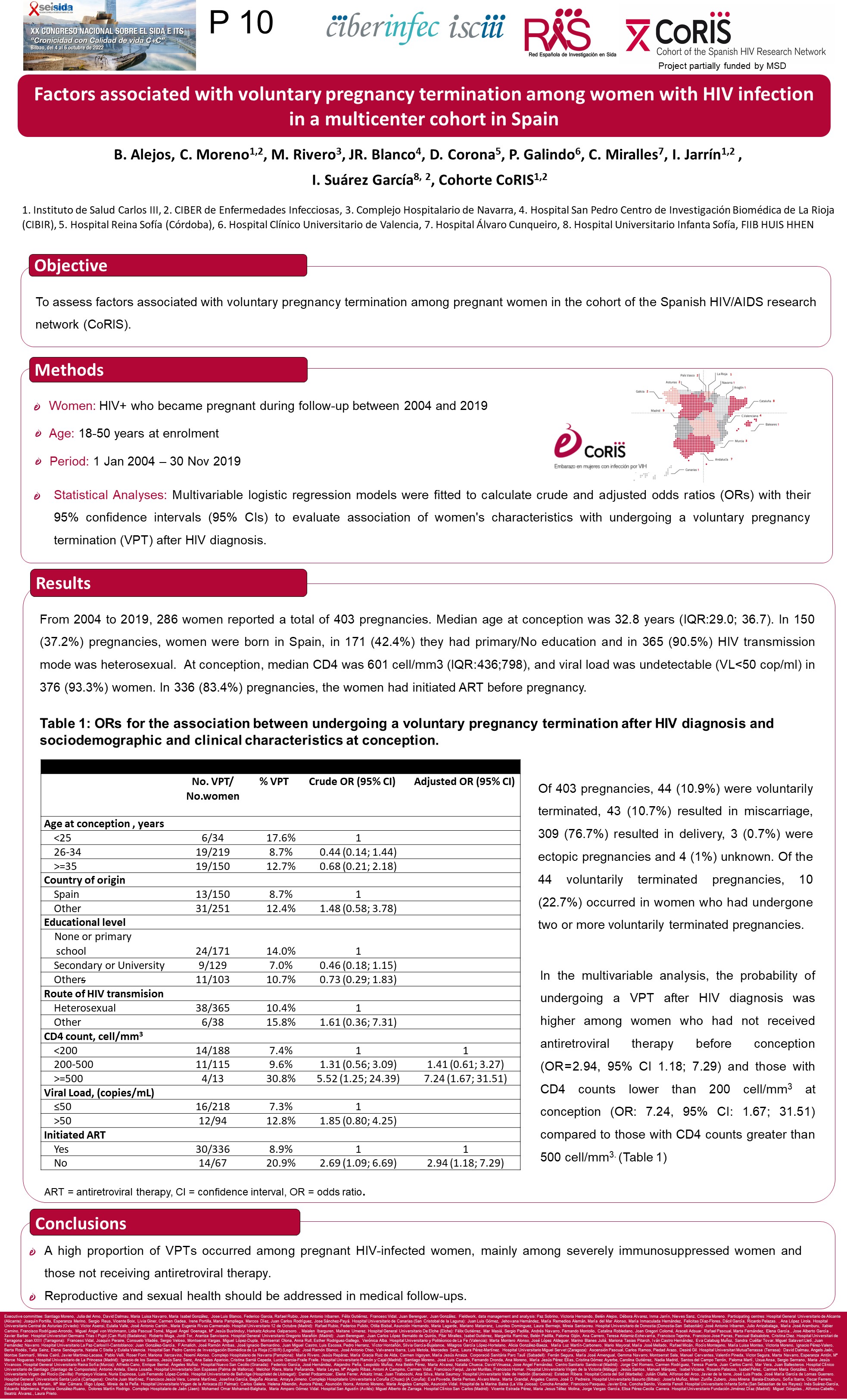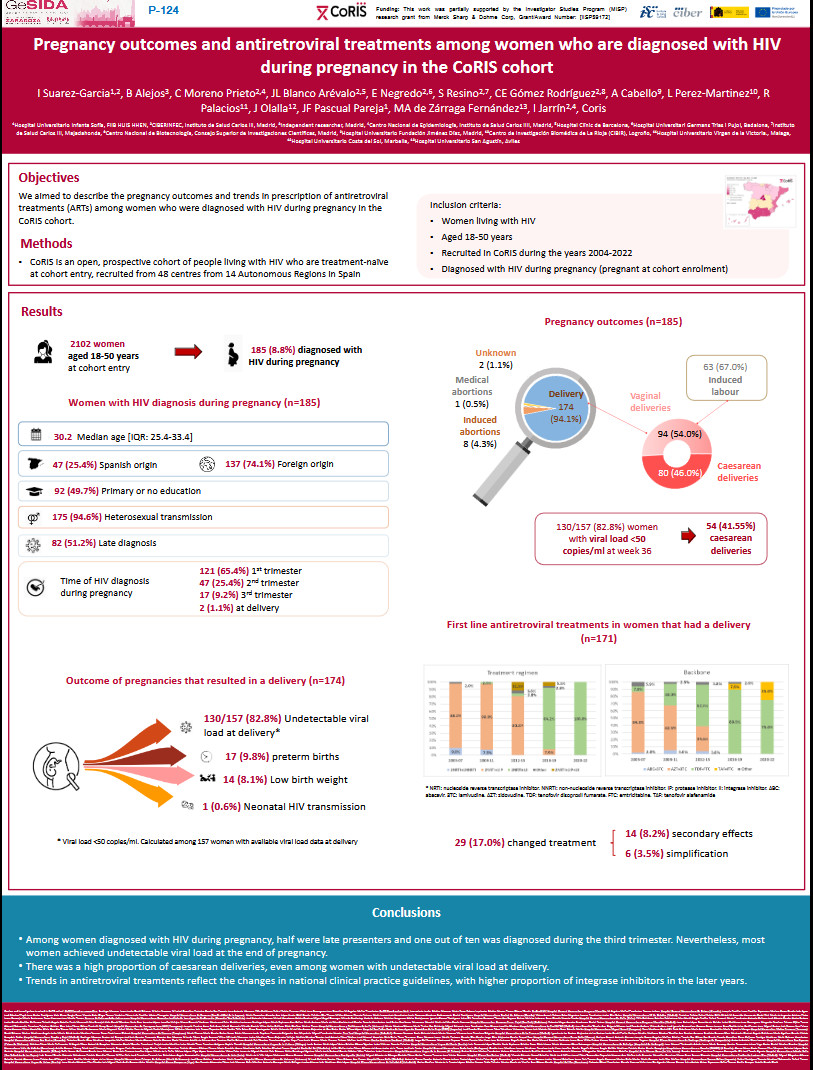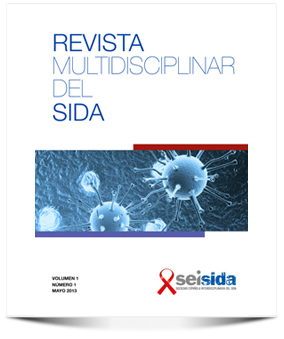Catàleg general VIH

Attitudes towards pregnancy in women with HIV infection: a multicenter cohort in Spain
Resum
Objective : To evaluate attitudes towards pregnancy and social and partner support among women from the cohort of the Spanish HIV/AIDS research network (CoRIS) Methods: We included all women with active follow-up recruited in CoRIS from 2004 to 2019, aged 18-50 years at recruitment who became pregnant during 2020. We designed an ad-hoc questionnaire, structured in several domains: sociodemographic characteristics, pregnancy and reproductive health, and social and partner support. The information was gathered via telephone interviews, which began on June 2021 and are still being conducted. Descriptive analyses were carried out using frequency tables for categorical variables and median and interquartile range for continuous variables. Results: total of 55 women met the inclusion criteria. By August 2021, 25 (45%) has answered the questionnaire. Median age at pregnancy was 36 years (IQR 29-40), 21 (84%) women were born outside of Spain, mainly in Sub-Saharan Africa (48%), and 13 (52%) were employed. Women with a partner accounted for 80% (n=20) of all women and of theses 90% (n=18) lived with their partner. Most women 20 (80%) neither smoked nor consumed alcohol during pregnancy, only one woman (4%) smoked daily and another one consumed alcohol 2-3 times/week. Twenty-three (92%) women had had previous pregnancies and 21 (84%) had experienced previous abortions. Only 7 (28%) women had shared with their clinician their desire to get pregnant. In nineteen (76%) women, the pregnancy was unplanned. Twenty-two (88%) pregnancies were natural and 3 cases used assisted reproductive techniques (in vitro fertilizations and 1 case, oocyte donation). Only 3 women tried to improve their health in preparation for pregnancy (took folic acid, stopped smoking, or sought medical advice). Two women were diagnosed with HIV infection during pregnancy. Of 22 women with natural pregnancy, 15 (68%) had information on how to become pregnant with the lowest risk to themselves and to avoid HIV transmission to the baby and partner. A woman was advised by the midwife not to get pregnant due to the risk suffered in previous pregnancies and another woman´s family disagreed with the pregnancy. Ten (40%) women reported having low social support during pregnancy and 17 (68%) had good/very good support by their partner. Conclusions: Most pregnancies were natural and unplanned. Most women had information about a safe pregnancy, although very few had talked with their clinician about becoming pregnant. Most women were foreign-born and a high proportion reported low social support during pregnancy.- Tema:
Autoria:
RUIZ ALGUERÓ, Marta; IZQUIERDO, Rebeca; SUÁREZ, Inés; MORENO, Cristina; ALEJOS FERRERAS, Belén; MICÁN RIVERA, Rafael; PÉREZ ELÍAS, María Jesús; SANZ, José; ZARRAGA, Miguel de; MUGA BUSTAMANTE, Roberto; JARRÍN VERA, Inmaculada; HERNANDO SEBASTIÁN, Victoria
Autoria institucional: CoRIS (Cohorte de la Red de Investigación en Sida) (España)
Autoria institucional: CoRIS (Cohorte de la Red de Investigación en Sida) (España)
Fitxa bibliogràfica
- Any de publicació:
- 2021
- Descripció física:
- [1] p.
- Format:
- Fulletó
- Tipus de document:
- Col·loquis i ponències
- Notes:
- Poster presentado en el XII Congreso Nacional de Gesida, celebrado del 29 de noviembre al 2 de diciembre de 2021 en Málaga (España).
Continguts relacionats
També et pot interessar
-
Factors associated with voluntary pregnancy termination among women with HIV infection in a multicenter cohort in Spain
-
Pregnancy outcomes and antiretroviral treatments among women who are diagnosed with HIV during pregnancy in the CoRIS cohort
-
El embarazo en las mujeres que viven con VIH, más allá del estigma





